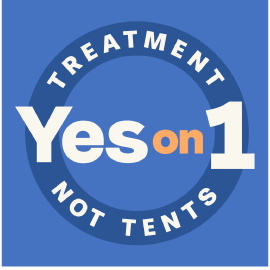
The resources that Proposition 1 will unlock to tackle the homelessness issue, as well as the measure’s accountability and local control provisions, were highlighted earlier this month at a California Chamber of Commerce briefing for local chamber partners and regional business allies.
The briefing was led by a seasoned team that included campaign representatives Jim DeBoo, owner of DeBoo Consulting and former chief of staff to Governor Gavin Newsom; Vanessa Carr with Hilltop Public Strategies; and senior officials from the Governor’s office.
Community Resources
Proposition 1 will provide significant resources for communities to use in combating homelessness, improving mental health service delivery, and building additional housing without raising taxes.
One key area Proposition 1 would affect positively is implementation of the Community Assistance, Recovery and Empowerment (CARE) Court Program. CARE Courts will connect individuals struggling with untreated mental illness and substance use with a court-ordered plan for recovery.
Presenters noted that by this time next year, CARE Courts will be running in all counties, and for this important initiative to reach its full potential, the reforms and resources in Proposition 1 are crucial.
CalChamber local business allies shared how the homelessness and mental health crises are affecting their communities and member businesses. Many speakers noted that homelessness is the most top-of-mind issue in their regions.
Proposition 1
Proposition 1 reforms the nearly 20-year-old Mental Health Services Act (MHSA) by ensuring that the funds deployed to counties are used to combat homelessness, treat those suffering from behavioral health conditions, and support specific vulnerable populations. Counties currently receive funds from a tax on incomes exceeding $1 million a year.
Although these funds are used on a range of laudable programs, the state is adding a layer of accountability, requiring counties to develop plans on how to spend the dollars that align with the updated policy priorities.
One significant area is providing housing and wraparound supportive services for those in emergency, transitional or permanent supportive housing. The proposition also authorizes a general obligation bond to fund construction of treatment and residential care facilities, as well as supportive housing. Proposition 1 does not raise taxes, nor does it change the amount of funding that counties already are receiving.
Recognizing that there’s no simple solution to homelessness, the state is developing a multi-pronged approach that seeks to align supportive services, housing, substance use treatment and the criminal justice system.
That’s why the CalChamber is supporting Proposition 1 and will be encouraging the CalChamber statewide grassroots network to join the growing coalition advocating treatment not tents.

